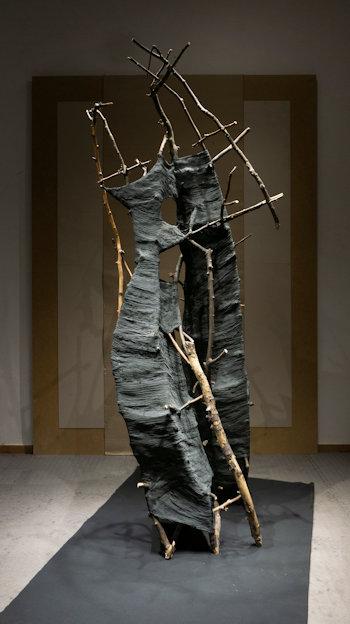 The whole of my sex education—a single sentence—took place during a visit to Aunt Sis’s house. Sis and her husband and two children lived in Queens on a street with lots of space between the houses. We lived in the Bronx, where the alleys between apartment buildings were barely wider than the garbage cans.
The whole of my sex education—a single sentence—took place during a visit to Aunt Sis’s house. Sis and her husband and two children lived in Queens on a street with lots of space between the houses. We lived in the Bronx, where the alleys between apartment buildings were barely wider than the garbage cans.
Sis and Uncle John had separate bedrooms because she believed coitus was meant for conception. She claimed to find no pleasure in intercourse, insisting those who did were destined for the miseries of hell. For Uncle John, the miseries arrived well in advance of his last breath, because Sis looked to the National Legion of Decency—a handmaiden of the Catholic Church—for guidance on leisure activities and the books and movies likely to rot your soul. She spent her own leisure crocheting outfits for dolls and cozies for toilet paper.
The mention of sex or of anything enticing or sensual or even attractive was not welcome in her home. So when I gasped out loud in her bathroom at finding blood on my panties, she got so upset she dropped her hook. Mom too was taken aback. I was only eleven, and she hadn’t gotten around to warning me this might happen. My three older sisters had hinted that something dreadful lay in wait, but they might as well have been explaining Einstein’s theory of relativity, the one about gravity and why we’re inclined to land on our ass. I didn’t question these mysteries. I took Albert’s word for it—and theirs.
Mom had very little to say about menstruation or any topic related to a woman’s fate; she got right to the point that day. The bathroom door was ajar, and her hand appeared, holding a sanitary napkin thick enough to soak up a mountain stream, two huge safety pins, and what I later learned was a sanitary belt—a contraption more intimidating than relativity—as her disembodied voice urgently whispered, “You can have a baby now.” Meaning I had her permission? A new skill? How exactly would I go about it? Would the safety pins be involved?
When I finally stepped out of the bathroom, striding like a cowhand who’s been breaking in saddles all morning, no one spoke to me. When I came close, they looked away. This blood stuff was humiliating, way worse than toilet paper on your shoe or snot on your nose.
My cousin was still playing with her Barbies, changing their outfits yet again. “Are you okay?” she said. Ellen was only ten and I wasn’t sure how much I should tell her. Mom put a finger to her lips, commanding silence. So I told Ellen I had a stomach ache, which I did, except way worse. I didn’t feel like playing anymore. The dolls’ crocheted dresses looked silly now.
On the way home on the subway, I sat by my sister June, away from Mom. “You got your period?” she whispered. June was two years older, knew all about the blood stuff.
“Yeah.”
“You’ll be okay. It just means you’re more like a woman now than a kid.”
I nodded, but I wondered if something had gone wrong, because I felt the same way I did before, like a kid. “What’s it supposed to feel like? Being a woman?”
“It’s hard to explain. You won’t feel like playing as much. You’ll want to do grownup things.”
I was okay with that, unless it meant crocheting. “What about the baby stuff?” I said. “How does that happen?” I knew if I asked Mom, she’d mumble something vague.
June looked out the window, into the dark subway tunnel, so I thought I’d get no answer from her either. “You know when Dad comes home drunk, but not that drunk?” Of course, I did. We all knew when it was safe to be within arm’s reach. “When he takes Mom into the bedroom? That’s when they’re making babies.”
“When she’s crying you mean? So it hurts?”
“Yeah.”
The pains in my stomach got sharper then. I didn’t want to be a woman. I shifted in my seat, but there was no way to escape the bulge of the napkin. Why couldn’t I be a boy? Or a Barbie doll, with no private parts? I could lie around waiting for someone to change my clothes. And my insides would be nobody’s business but my own.
__
Mary Ann McGuigan’s creative nonfiction has appeared in X-R-A-Y, The Rumpus, Pithead Chapel, and elsewhere. The Sun, Massachusetts Review, North American Review, and many other journals have published her fiction. Her collection Pieces includes stories named for the Pushcart Prize and Best of the Net; her new story collection, That Very Place, reaches bookstores in 2025. The Junior Library Guild and the New York Public Library rank Mary Ann’s novels as best books for teens; Where You Belong was a finalist for the National Book Award. She loves visitors: www.maryannmcguigan.com.

5 comments
Judy Alter says:
May 28, 2024
Clever and nicely done, Mary Ann. I am glad to discover your writing.
Hope Herting says:
May 28, 2024
Wow! Did you capture this ever so eloquently! What were mothers thinking back in the ’60’s???
Patience Mackarness says:
Jul 29, 2024
Woo, wonderful! And very funny.
patrick wilson says:
Oct 4, 2024
Amazing
Liz deBeer says:
Oct 22, 2024
Powerful story – from the first to last sentence.